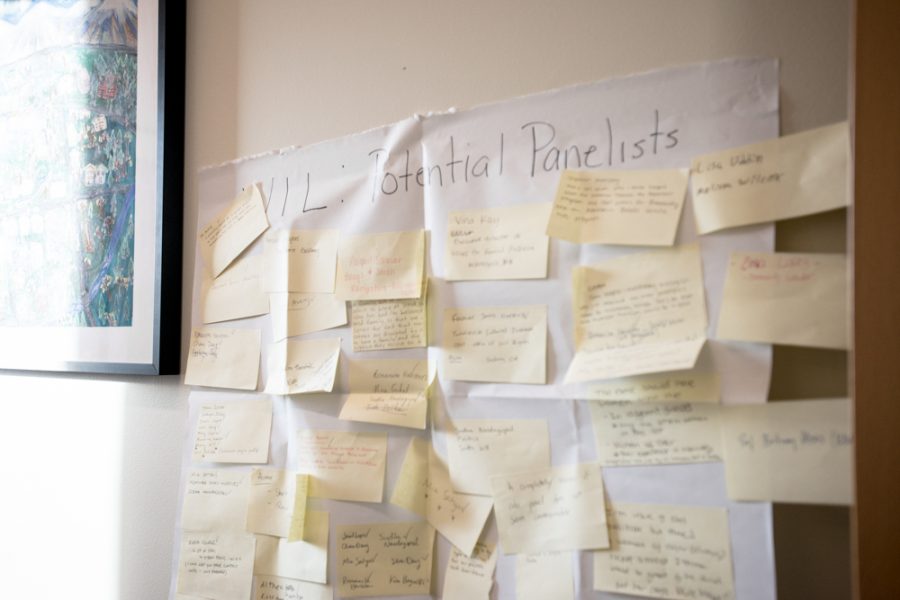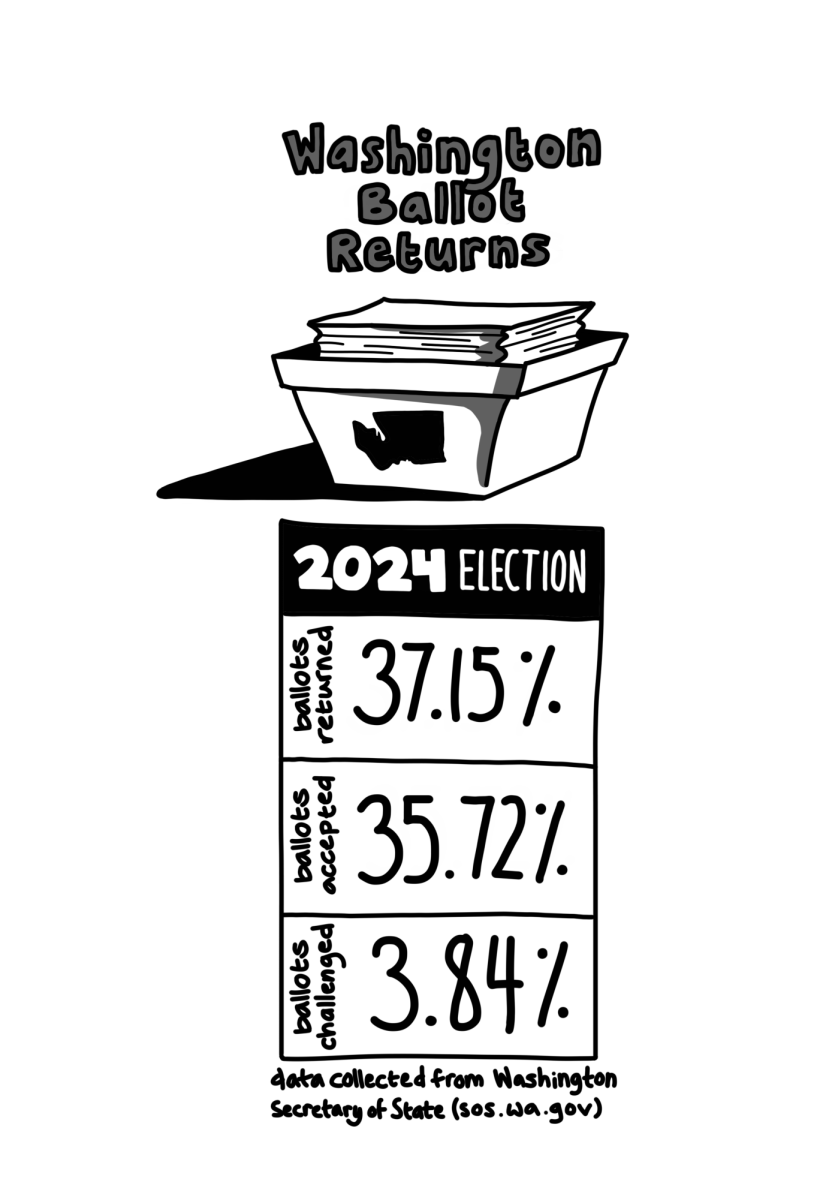Whitman students and community members alike crowded into Maxey Auditorium to hear Spencer Wells, explorer-in-residence for National Geographic, lecture on the genetic history of humans.

Wells, a professor at Cornell University, leads the Genographic Project, which has collected DNA samples from more than 500,000 people around the world. He and his team are attempting to track with greater specificity the journey of our species as we spread around the world.
“It is really the most epic story ever told,” he said.
Wells and his team build upon our current reckoning of our species’ prehistory through the field of human population genetics. The Genographic Project examines an individual’s mitochondrial DNA and Y chromosomes to determine his or her prehistoric and recent genealogy. The team has made significant discoveries helping to reveal anomalous episodes in human history.
“That had never occurred to me before, that the Sahara didn’t even exist,” said sophomore Carrie Walker, referring to the recent discovery that the climate of the area now occupied by the Sahara desert was once something of a savanna.
Wells described how the reconstruction of the area’s prehistoric climate coincided with his research. The timing of the milder climate matched the hitherto unexplained African diaspora. Before, scientists had no satisfactory explanation for how humans traversed the desert barrier.
Wells proffered an analogy, likening the changing climate to a pump. A wetter climate invited human migration. Later, when the climate shifted back to its desert state, the populations that inhabited the area were “pumped out.” Some returned to sub-Saharan Africa while others travelled north, setting humans on the way to populating the world.
Wells regards climate as the primary determinant of ancient migration routes. Answering a question from the audience, Wells suggested that this is not just a history, but rather a trend in human existence. According to Wells, 10 percent of those displaced by Hurricane Katrina did not return. Climate-caused migration is prevalent.
In addition to explaining the great journey of our species, Wells hopes to spread a sense of connection.
“I think it’s important for people to realize that despite all of these surface features that distinguish people from all over the world, underneath … we’re much more closely related at the genetic level than anybody might suspect,” said Wells.
Community member Mike Gillespie expressed excitement at the idea of a shared human story.
“The breadth of knowledge and the interest in the whole human family … It’s a thrilling project for all of us to know more about,” he said.
Although most research of the Genographic Project is done in the field testing willing members of indigenous populations, Wells also emphasized two other parts of the project. They have raised $1.9 million for the preservation of indigenous culture and practices around the world.
The project also has a public participation component in which all are encouraged to send in cheek swabs to discover their own genealogy.
“To the extent that the public is interested in getting involved in the research effort … it helps us to improve the story for everybody,” said Wells.
“I’m really tempted to send in my cheek swab now,” said Walker.















